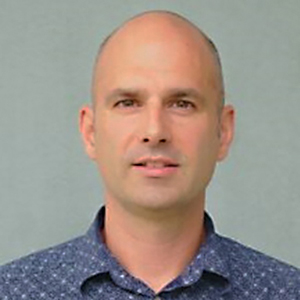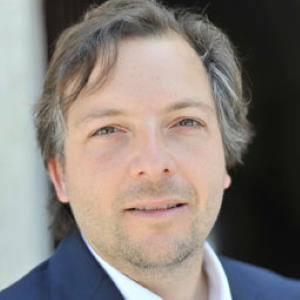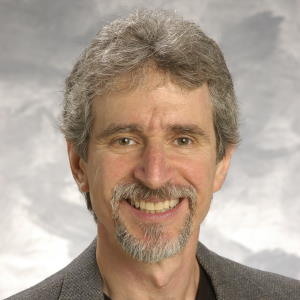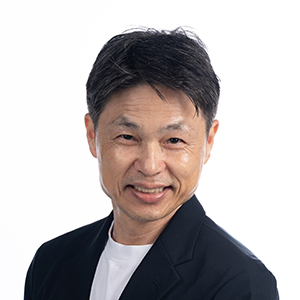ISEK Elections 2024-2026
Members of ISEK in full standing, are entitled to participate in the election of members to serve on the Board for the 2024-2026 term. Members in good standing will have received a link directly to the email on their membership account for the electronic vote. Only members who are fully paid for the current year (2024 membership expiry) are eligible to vote in the election. Please review the information below and vote before the election closing date of March 28, 2024.
If you have not received the voting link, please contact the Secretariat to confirm your membership.
Council Vice President Nominations

François Hug, PhD
François Hug received his PhD in human movement sciences from Aix-Marseille university (France – 2003). As Full Professor at Nantes Université (France), he led a research Lab until he moved to Université Côte d’azur (France), in 2021. He is a fellow of the Institut Universitaire de France and an honorary professor at the University of Queensland (Australia) where he spent >5 years since 2011.
Francois research focuses on the neural control of movement in health and disease. He has developed a neural framework based on the non-invasive recording of motor neurons to reveal the modular organization of movement control at the spinal motor neuron level. He has published >200 articles in peer-reviewed journals.
Francois serves on the editorial board of Journal of Electromyography and Kinesiology and Scandinavian Journal of Medicine and Science in Sport. He is an expert for the Consensus for Experimental Design in Electromyography (CEDE) project, which is an international initiative which aims to guide decision-making in recording, analysis, and interpretation of electromyographic data. Since 2022, he has served on the ISEK council and in the member services sub-committee. In this role Francois has contributed to organize the series of ISEK-JEK tutorials.
Statement:
I have been an active member of ISEK and have attended all ISEK conferences since 2006. I particularly appreciate the friendly atmosphere of the ISEK conferences, which make them an ideal place for early career researchers (ECR) to present their work and build new collaborations. My primary motivations for serving as the next vice president are to contribute to the development of ISEK by promoting research in Electrophysiology and Kinesiology, and facilitating the interaction of well-established ISEK contributors with our growing ECR community.
I am committed to positioning myself in the continuity of recent developments within ISEK, with a special focus on enhancing the representation of ECRs, embracing diversity, and producing valuable resources (tutorials, teaching repositories, ISEK around the world), for our community and beyond. The shift towards organizing online events in recent years has significantly enriched the ISEK membership experience, offering ongoing learning and networking opportunities.
I am eager to expand these recent initiatives by emphasizing mentorship within the society, fostering a supportive environment for ECRs while ensuring recognition of senior researchers whose contribution is essential for ISEK’s ongoing success. I also believe that ISEK can play an important role in promoting open science initiatives in the fields of electrophysiology and kinesiology, which will ultimately benefit the wider scientific community.
As in recent years, I fully support that these initiatives need to be organised in collaboration with related societies to broaden the experience and opportunities for our large community rather than duplicating effort.

Francesco Negro, PhD
Prof. Francesco Negro received the M.Sc. degree in telecommunication engineering from the Politecnico di Torino, Torino, Italy, in November 2005, and the Ph.D. degree in biomedical engineering from Aalborg University, Aalborg, Denmark, in April 2011. From 2006 to 2010, he was a Research Assistant and Ph.D. Fellow at Aalborg University. From 2011 to 2016, he was a Postdoctoral Researcher at the Institute of Neurorehabilitation Systems, University Medical Center Göttingen, Georg-August University, Germany, within the Bernstein Focus Neurotechnology and Bernstein Center for Computational Neuroscience. From 2016 to 2018, he has been a Marie Curie Individual Fellow on the project NeuralCon at the Department of Clinical and Experimental Sciences, Universita’ degli studi di Brescia, Italy. In 2022, he has been granted a Consolidator grant from the European Research Council. Until 2023, he has been an associate editor for the Journal of Electromyography and Kinesiology, and he has been member of the ISEK Council from 2016 to 2022. Prof. Negro is currently a Full Professor at the University of Brescia. His research interests include applied physiology of the human motor system, signal processing of intramuscular and surface electromyography and modeling of spinal neural networks.
Statement:
My goal in seeking the position as Vice-President of the International Society of Electrophysiology and Kinesiology is to help the society in promoting research and education in the areas of human movement and neuromuscular diseases. In recent years, there has been a revolution in the fields of electrophysiology and kinesiology with new advanced techniques being introduced for the study of the neuromuscular system. However, all that glisters is not gold and, therefore, nowadays, there is more than ever the necessity to disseminate potentials and limitations of such powerful tools. During my research career, I have spent restless efforts to communicate rigorously the advantages and disadvantages in the extraction of neurophysiological information from intramuscular and surface electromyographic signals. Among my main scientific contributions, the most cited publications are those focused to the interpretation of electrophysiological measures, motor unit identification and physiology. Additionally, I have been a council member of the ISEK society and an associate editor of the Journal of Electromyography and Kinesiology for several years where I have carried on my mission of conscientious dissemination. Recently, I have been assigned a leading role in the technical committee of ISEK society.

David M. Selkowitz, PT, PhD, DPT, OCS
Dr. Selkowitz is currently Associate Professor in the Department of Physical Therapy, MGH Institute of Health Professions, Boston, Massachusetts. He has been on university faculty for over 30 years, having taught electrotherapy, evaluation and management of musculoskeletal dysfunction, and research. His clinical experience in orthopedic/musculoskeletal PT spans more than 40 years. He has presented at numerous professional conferences, workshops, and continuing education courses, from local to international venues, and has published peer-reviewed journal articles on electrotherapy, kinesiology, and musculoskeletal function/dysfunction, including 2 book chapters on electrotherapy. Dr. Selkowitz has been honored with the Faculty Publication Award and Best Research Platform Presentation Award by the California PT Association. He was a member of the International Panel of Experts of the ElectroPhysical Forum for its 6 years, and a member of the International Society of Electro-Physical Agents.
Statement:
I have served in leadership positions on various professional committees and groups during my career. In California, I served 2 terms as Chairperson of the Research Special Interest Group (SIG) and 3 terms as the co-founder and Vice Chairperson of the Orthopedic Manual Therapy SIG. I have served on the California Physical Therapy Fund Board of Directors since 2004, which administers funding for research by California PTs. I was honored with the Clarence Hultgren Service Award by the California PT Association. I am also a Massachusetts state PT chapter assembly delegate.
In addition, I served 3 consecutive terms on the ISEK Council, which included chairing the committee on the fellowship process. When I termed out of my position on the Council, there was no mechanism to return to ISEK service. Now that this is possible, I would like to serve this great organization and its members as Vice President of the Council. Thank you for your consideration.

Minoru Shinohara PhD, FACSM
Minoru “Shino” Shinohara serves ISEK Council (2nd term) as Secretary and Member Services Committee Chair. He is Director of Human Neuromuscular Physiology Lab and Associate Professor in Biological Sciences and BME at Georgia Institute of Technology, USA. He studies motor control and adaptation mechanisms using EMG (interference/motor unit), mechanomyography (MMG), ultrasound (elastography/B-mode), neurostimulation (tVNS, TMS, spinal reflex), EEG, and engineering approaches, including robotics. He received his BS and MS in Physical Education and PhD in Multidisciplinary Sciences from University of Tokyo, Japan. He worked there as Assistant Professor, Pennsylvania State University as Research Associate, and University of Colorado at Boulder as Senior Research Associate before joining Georgia Tech in 2006. He has served as Associate Editor of Medicine & Science in Sports & Exercise (2010-2020) and Editorial Board Member of Journal of Electromyography and Kinesiology (2008-), Journal of Applied Physiology (2009-), Medicine & Science in Sports & Exercise (2009-2010, 2020-), Journal of Motor Behavior (2012-), and Journal of Physiological Sciences (2012-2015). He received American Physiological Society Research Career Enhancement Award (2005) and Star Reviewer (2008 & 2022), American Society of Biomechanics Research Travel Award (2009), and American College of Sports Medicine Fellow status (2003) and Visiting Scholar Award (2009).
Statement:
I have been actively involved in ISEK, serving on the editorial board of the Journal of Electromyography and Kinesiology since 2008. Elected to the ISEK Council in 2020, I contributed to the Member Services Committee, gaining valuable insights into Council operations. Re-elected for the second term in 2022, I assumed greater responsibilities as Secretary and Chair of the Member Services Committee. I have led the initiative in organizing the ISEK-JEK Tutorials and fostering partnerships with other societies like the International Motoneuron Society. Additionally, I led the initiative to create the Technical Committee and am currently leading the development of the Clinical Application Committee and the Education Committee. I also supported the inaugural ISEK Around the World event by representing America. If elected as Vice President, I will help accelerate the growing momentum alongside the current and incoming Presidents I have worked with for the past four years. I want to help advance ISEK to be an attractive and rewarding community where people feel related and excited by finding something new and interesting to share or learn. I aim to cultivate an inclusive and dynamic community, integrating new areas and diverse perspectives into scientific research, technical development, clinical applications, and educational endeavors while enhancing existing strengths such as EMG. Feedback and involvement of new and existing members will be instrumental in achieving these objectives. Regardless of my role, I am dedicated to serving on the Council, drawing on my interdisciplinary research background to provide professional and committed leadership within ISEK.
